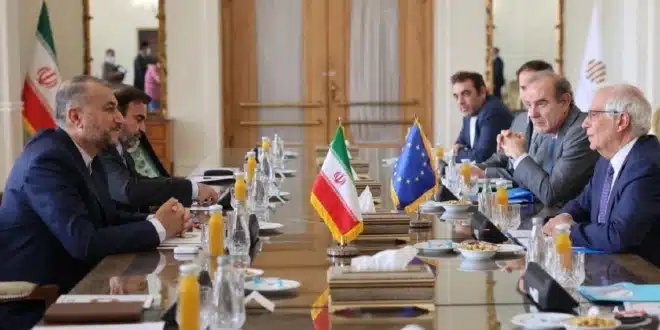Iran will engage in talks over its nuclear program with major European powers–France, the UK, and Germany–in Geneva on January 13. There is hope, amid these ongoing discussions, of solving concerns against Iran’s nuclear policy and sanctions being enforced once again. This comes days before Donald Trump resurfaces at the helm in the U.S., a situation where tensions seem to be in an all-time high and every decision about Iran by him seems controversial.
The JCPOA 2015 was a historical agreement whereby Iran agreed to cap its nuclear activities in exchange for sanctions relief. However, in 2018, President Trump withdrew the U.S. from the deal, reinstating strict sanctions on Iran. In reaction, Iran gradually decreased its compliance with the agreement, escalating uranium enrichment activities. This can be seen to be the renewed efforts by European nations to address these issues in diplomatic talks, to not let things go further.
European leaders are increasingly concerned about Iran’s developing nuclear capabilities. French President Emmanuel Macron recently said that Iran’s nuclear program is at a “critical point,” and he urged the European partners to consider reinstating sanctions if Iran does not begin to make progress. The Geneva talks aim to find a diplomatic solution to reinstate some limitations on Iran’s nuclear activities while providing economic relief that Iran is seeking.
Iran’s Stand and Expectations
Iran had maintained it was a civilian program and asked for relief in place of the sanctions that badly hit the country’s economy. Before the negotiations, Iran’s foreign ministry had stressed the issue of removal of sanctions and offered an ear to concerns presented by the European parties. But Iran called on France to reverse its “unconstructive” approach after comments from French officials on the possible reimposition of sanctions.
Implications of Trump’s Return
The return of Donald Trump to the U.S. presidency makes the negotiations even more complicated. Trump’s previous “maximum pressure” campaign increased tensions between the U.S. and Iran. European diplomats are aware that time is running out to achieve a diplomatic breakthrough before potential policy shifts under the new U.S. administration. The outcome of the Geneva talks could influence future U.S. strategies and the overall stability of the Middle East.
The Geneva talks between Iran and European powers are at the critical juncture where addressing the problems created by Iran’s nuclear program is crucial. In the setting of Donald Trump’s return to the U.S. presidency, there is increased pressure for a peaceful resolution. The international community goes through a wait-and-see process in hopes that the dialogue will be productive, stabilizing the region and stopping the ongoing proliferation of nuclear arms.


